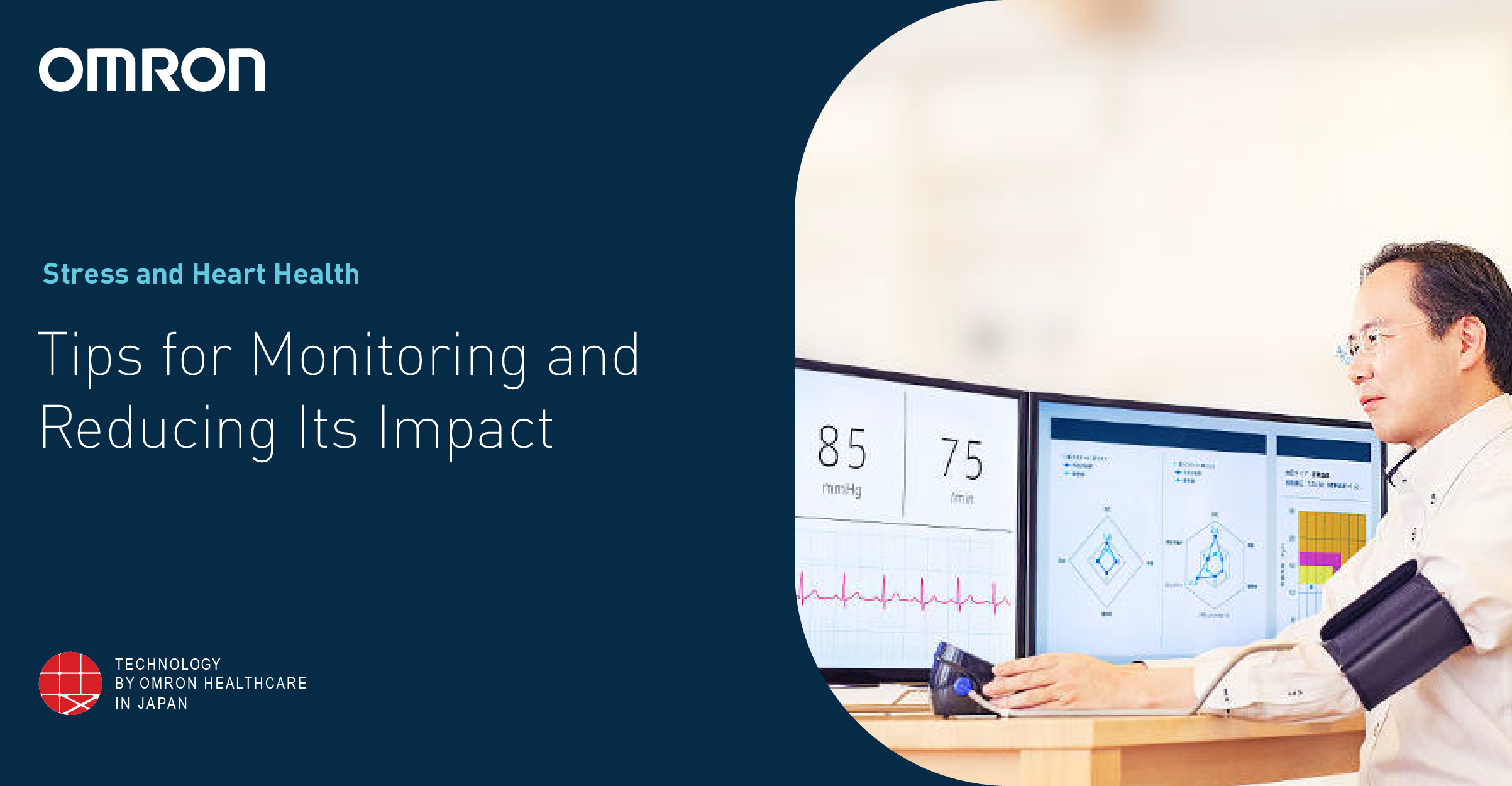Stress and Heart Health: Tips for Monitoring and Reducing Its Impact
April 21, 2025 2025-04-21 17:35Stress and Heart Health: Tips for Monitoring and Reducing Its Impact

Stress and Heart Health: Tips for Monitoring and Reducing Its Impact
Stress is a natural reaction to challenges of life, but prolonged or unmanaged stress can significantly affect your heart health. High levels of stress may lead to an increase in blood pressure, trigger irregular heart rhythms, and heighten the risk of cardiovascular diseases. The good news is that with regular monitoring using tools like a BP machine and adopting stress-reducing practices, you can manage its impact on your heart health effectively.
How Stress Affects Heart Health
When you go through stress, your body releases stress hormones like adrenaline and cortisol. These hormones help your body for the “fight or flight” response by increasing heart rate and constricting blood vessels. While this reaction is beneficial in the short term, chronic stress can lead to:
- Elevated Blood Pressure: Stress often causes temporary spikes in blood pressure. When these spikes occur repeatedly over time, they can contribute to the development of chronic hypertension by putting continuous strain on the cardiovascular system.
- Inflammation: Chronic stress leads to inflammation, which is a key factor in the development of heart disease.
- Unhealthy Habits: Stress can lead to poor lifestyle choices, such as overeating, smoking, or reduced physical activity, all of which strain the heart.
Monitoring Heart Health During Stress
One of the effective ways in keeping track of your heart health during stressful times is by using an efficient blood pressure machine. Regular monitoring of BP will help you understand the patterns and act accordingly before stress-related issues escalate.
- Use a Reliable BP Monitor
Invest in a high-quality BP monitor machine to track your blood pressure accurately. Modern pressure-checking machines are easy to use and provide readings for systolic, diastolic, and pulse rates.
- Establish a Monitoring Routine
Check your blood pressure at the same time every day, preferably when you’re relaxed. Avoid caffeine and nicotine, or exercise at least 30 minutes before using the BP check machine for more accurate results.
- Log Your Readings
Always keep the record of your readings, either manually or through apps that can be connected to your blood pressure-checking machine. This can help you and your healthcare provider to understand how stress is impacting your heart health over time.
Tips for Reducing Stress and Supporting Heart Health
Reducing stress not only improves mental well-being but also alleviates its impact on your heart. These are some practical strategies to incorporate into your daily routine:
- Practice Mindfulness and Relaxation Techniques
Mindfulness practices like meditation, deep breathing, and progressive muscle relaxation will help reduce stress levels. These techniques lower the heart rate and subsequently blood pressure, giving your heart a much-needed break.
- Stay Physically Active
Regular physical activity is a effective stress reliever. Aim for at least 30 minutes of moderate exercise most days of the week. Activities like walking, jogging, or yoga not only reduce stress but also strengthen your heart.
- Maintain a Healthy Diet
Stress often leads to unhealthy eating habits. Focus on a balanced diet rich in fruits, vegetables, whole grains, and lean proteins. Limiting salt and caffeine can also help maintain healthy blood pressure levels.
- Get Quality Sleep
Lack of sleep exacerbates stress and negatively impacts heart health. Try to get 7-9 hours of quality sleep per night. Set up a calming bedtime routine to improve your sleep quality.
- Connect with Others
Strong social connections can buffer against stress. Spend more time with friends and family, or one can even consider joining support groups to share experiences and coping strategies.
When to Seek Medical Advice
While monitoring with a BP monitor machine and adapting to healthy habits can go a long way, it’s important to consult a healthcare provider if:
- Your blood pressure readings remain consistently high despite lifestyle changes.
- You experience symptoms like chest pain, shortness of breath, or irregular heartbeats.
- Stress becomes overwhelming and affects your daily functioning.
The Role of Modern BP Monitors in Stress Management
Advancements in technology have made monitoring heart health more accessible than ever. The best bp machines in India offer features such as:
- Ease of Use: One-touch operation for quick and accurate readings.
- Memory Function: Stores previous readings for easy tracking.
- Portability: Compact designs allow you to monitor on the go.
- App Integration: Sync your readings with mobile apps to share data with your healthcare provider.
By using a reliable blood pressure machine, you can stay proactive about your heart health and take the necessary steps to mitigate the effects of stress.
Conclusion
Stress and heart health are intricately linked, but the good news is that you can take charge of the situation. Regular monitoring with a BP check machine and adopting stress-reducing practices are vital steps toward protecting your heart. Remember, your heart is your body’s engine—take care of it by managing stress effectively and seeking professional advice when needed.






